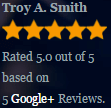People facing felony charges in New York face harsher consequences than other states, because the sentencing laws are quite complicated. If a court issues an indeterminate sentence, it establishes a range from minimum to maximum periods of time. Once a person has served the minimum amount of time they become eligible for parole.
Determinate sentences are set as a number of years, there is no range. Felonies involving drug crimes often result in determinate sentences. Depending on a person’s prior record, the sentence may be changed in class. The class of the felony class determines the amount of time in jail and the length of probation. For instance, in New York if you have a Class B felony and one prior offense, you are facing a sentence of 10 to 25 years.
In New York you can be sentenced to life in jail without parole. If you are convicted of a terrorist crime you must serve a life sentence without parole. The difference being that some felonies have other factors to consider, making them eligible for less severe outcomes.
A court can and probably will order someone convicted of a felony to pay a fine. The fine cannot be any more than double the amount the person gained in the crime. If convicted of a drug crime in New York you are looking at severe fines, especially if you have a prior conviction. The state of New York has to abide by statue limitations, meaning that they cannot charge someone after a certain amount of time.
If you find yourself in a situation where you have to worry about any of the above, contact a local criminal defense attorney. Do not try and navigate legal matters on your own, be prepared.











